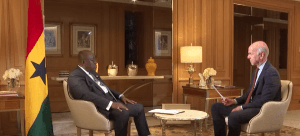- Abaare Reports
- Addi Kujay
- AfricaCNNnews
- Afriyie Kwaku Boachie
- AHAFO
- Alby News Ghana
- ASHANTI
- BONO EAST
- BRONG AHAFO
- Canard Afriq
- Cash In Trash
- CENTRAL
- Cherries
- Club Mate
- Courageous World
- Crest City News
- Current Affairs
- Daily Biz
- DailySpot
- Daniel Kaku
- Da Spicy News
- DC KWAME KWAKYE
- EASTERN
- EBI
- Facts Check
- Gabs Feed
- Ghana News Timeline
- Ghana News Update
- Godblessed1
- GREATER ACCRA
- Great Okocha
- Harry Graphic
- iNews
- Info News Ghana
- King B
- Kofipedia
- Lovely
- Managing GH
- Man Zekay
- Mart News Empire
- Maxkaytheblogger
- Mohammed Zakwan
- MyDailyNews
- Nana Kay News
- News Hub GH
- News Today
- News Zone 360
- Nine 9
- NORTH EAST
- NORTHERN
- ObuabaMedia
- OTI
- Priests News
- Royalnews360
- Sahara Writers
- SAVANNAH
- Simpsons Blog
- Skate News
- Smart News Ghana
- SpinnerWeb
- Teddytheblogger
- Ted News Ghana
- The news
- TheoNews
- Trending Now
- UPPER EAST
- UPPER WEST
- VOLTA
- Wadupgh
- Web Brief
- WESTERN
- WESTERN NORTH
Chris News Media Blog of Sunday, 7 May 2023
Source: realnewz.live
Do You Think Asantehene Is To Be Blamed For The Lack Of Development In Ashant Region?

In recent years, the Asantehene, Otumfuor Osei Tutu II has been subjected to an onslaught of unjust criticism for the apparent lack of development in Asanteman.
Some have alleged that the King has done little to enhance the living conditions of his people, the most populous ethnic group in Ghana. Others have even made unsubstantiated corruption allegations against the venerated monarch. However, are the allegations true?
As an Asante, I believe that the development of a kingdom entails numerous factors and complexities, and it would be unfair to place the sole responsibility for development on one person. Additionally, it is essential to consider the context and the numerous development efforts that have been made. The people of the kingdom and their representatives are responsible for evaluating the Asantehene's performance and holding him accountable when necessary.
In contemporary Ghana, the Asante monarchy remains a significant cultural and historical institution. Our traditional leaders continue to play vital roles in the preservation and promotion of our culture and traditions.
The Asantehene, who is the monarch of the Asante kingdom, is a symbol of unity and leadership for the Asante people, and he plays a crucial role in preserving social cohesion within the kingdom. The Asantehene is also responsible for preserving traditional customs and practices, and he has the power to mediate disputes and resolve conflicts among the people.
It is a well-known fact that the Asante kingdom is home to numerous natural resources, including gold, cocoa, and timber, which contribute significantly to the economy of Ghana. Nonetheless, I am of the opinion that it may not be entirely fair to censure a traditional ruler for not developing their kingdom when the management of these natural resources and taxes falls outside their jurisdiction and under the control of the political government. Traditional rulers may play significant roles in fostering social cohesion and preserving cultural heritage, but their influence over economic and political affairs may be limited, especially in countries where political power is centralized.
Instead of exclusively blaming one group or the other, it may be more productive to encourage collaboration between traditional rulers and political leaders to promote development. By collaborating, they can create policies and initiatives that benefit the entire kingdom or country and ensure that natural resources and taxes are managed for the benefit of all citizens.
You can share your views and comments on the comment section below.
Business










